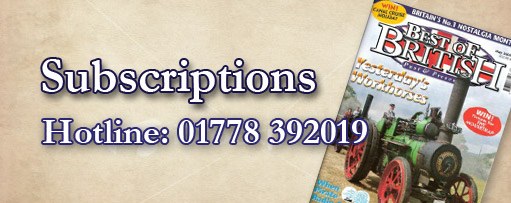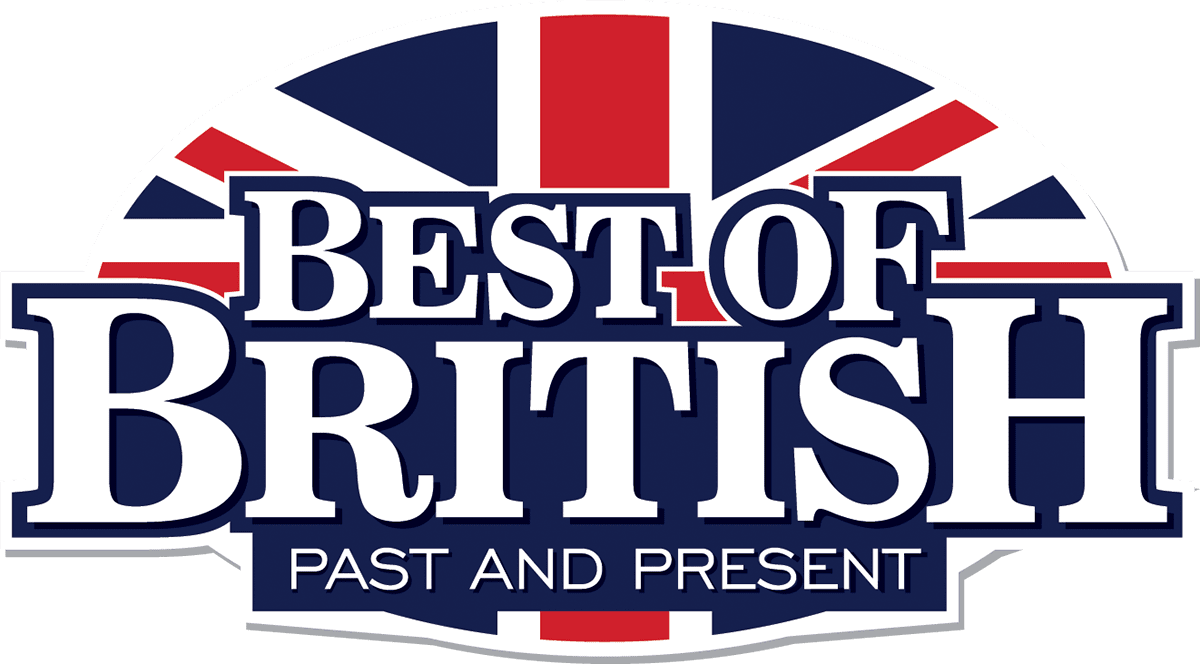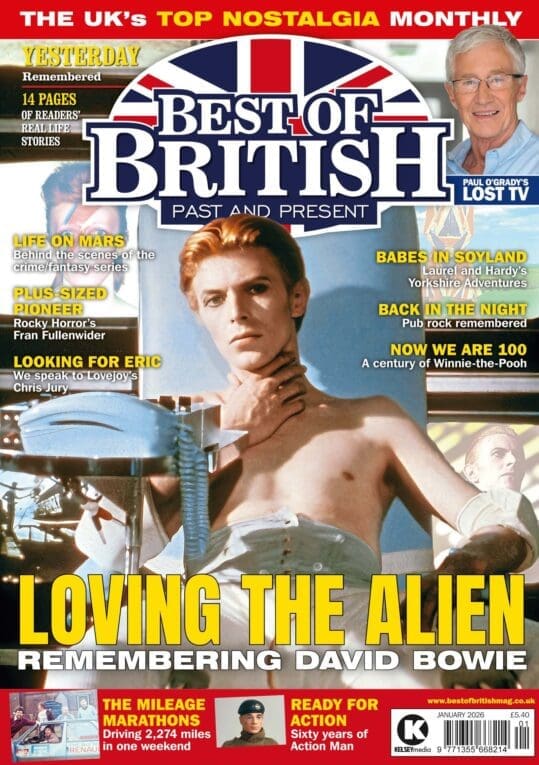
I come from a line of coalminers and bargees. My mother was born on a barge, and my father and an uncle worked underground in the pits. In spite of the ever-present hazards, they enjoyed the camaraderie of their colleagues and nothing would have induced them to seek employment in any other job. Unfortunately, my father developed the miner’s disease, pneumoconiosis, caused by the inhalation of dust over many years, and this shortened his life.
My bargee uncle, Bob Bridge, spent his time on Shelga, which was moored at Crooke Village, and he transported goods along the Leeds and Liverpool Canal. As a young girl, and accompanied by a cousin, I eagerly anticipated school holidays and weekends, when we joined him and sailed with a cargo of coal or flour.
Enjoy more Best of British Magazine reading every month.
Click here to subscribe & save.
I enjoyed going to the drift mine at Crooke and watching the coal-laden wagons being weighed on a turntable. The harsh, grating noise of the coal as it passed down the chute was deafening, but it seemed to have a vital music all its own. Often, coal spilled into the canal, and an enterprising elderly villager tied thick wire mesh over the scoop of a large spade, lowered the attachment into the canal, and slowly drew it through the water. When an adequate supply had been retrieved, it was bagged up into flour sacks and promptly delivered to pensioners and other needy folk in the area. Nominal rates were paid by the recipients, who were proud people and would not consider accepting something for nothing.
On Sundays, the barge was thoroughly cleaned from top to bottom. It was hard, tiring work. Brasses were polished, and the wooden fitments boasted a renewed sheen, which added to the beauty of the interior. This demanding but worthwhile procedure was well received by Uncle Bob, and preceded his next excursions down the canal. Sadly, within hours, our cleaning efforts were of no avail.
During the potato picking season, we sailed downstream to Valentine’s Farm, where my cousin and I assisted. We were rewarded with the princely sum of half-a-crown, and in the 1940s, we felt like millionaires. Neither of us was exactly thrifty and we immediately headed for the local shops, where we treated ourselves to raspberry pop and packets of Smith’s crisps.
Living near to a railway line, I recall the occasion when a fully-laden, runaway coal wagon gathered momentum as it hurtled down an incline and finally came to rest at the bottom of the track. Its contents spilled everywhere and there were some near misses, when lumps of coal hurtled through the air. Our neighbour, who had also witnessed the incident, expressed her concern to my mother and then promptly collapsed. Fortunately, she recovered. The episode was reported in a local newspaper, and it served as a salutary warning to others who might have been tempted to venture too near the track, and a great deal of caution was thereafter exercised.
It was not uncommon to see whole families cycle from Springfield and Beech Hill to watch from a safe distance the coal being tipped into the barges. They were well aware that there would be spillage, and they came prepared with bags and sacks to recover some of the booty.
We often travelled on Shelga to Wigan Power Station and Burscough Mill, and on warm, sunny days we would tie up near to a canalside public house and sit in the garden enjoying cool, refreshing drinks while Uncle Bob would enter the premises and treat himself to a glass of ale.
Although my cousin and I enjoyed many trips on the boat, we had a morbid fear of the locks and quays en route. We dreaded the thought of falling into the murky water, and would wait on the towpath until the operation was completed, then gingerly step back on board. Salvation came in the shape of a little stray dog, to whom we gave the name Poker. He was confident on and off the boat and did not display the slightest fear. Uncle Bob advised us to regard Poker as a role model, and it wasn’t long before we overcame our aversion.
On very cold days, our uncle steered the barge while we stayed below deck drinking hot cups of Oxo, into which we dipped pieces of dried bread. This was followed by cheese and pickled onion sandwiches, and the added treat of an apple and pear each. It was comforting to sit in the warm cabin without a care in the world reading Dandy and Beano comics.
Uncle Bob did many favours for people and I well remember the occasions when he was asked by elderly residents to buy Indian brandy from a shop in Burscough. They claimed that as it came from a barrel and tap, it had a much stronger flavour than that supplied in bottles. Uncle Bob duly obliged and in return would be rewarded with five shillings, pigs’ trotters and black tripe.
The hard-working horses that pulled the barges also provide another source of income. Uncle Bob had a ready market for discarded horseshoes, which were nailed to houses in the hope that the occupants would be well blessed. He was also asked to collect and deliver horse manure to improve the soil of local gardeners, and was said that nothing could beat the wonderful flavours of Burscough’s organically-grown carrots and potatoes.
Uncle Bob became only too aware that with the development of alternative and speedier road routes the commercial canal trade was in decline. Though slower and cheaper, it was outpaced by rival systems but, unlike them, it was tempered and compensated by soothing relaxation and an awareness of a natural beauty unseen by those who are familiar with waterway systems. Indeed, it was a whole new world.
My uncle was forced into retirement and his fervent wish to spend his remaining years in an old lock house with Shelga moored outside did not materialise. Instead, he secured employment in a Salford public house, a poor substitute for the life that he loved. Shelga was decommissioned and taken to a Wigan boatyard and shortly afterwards Uncle Bob passed over.

My memories of those bygone days will forever remain fresh and vivid. Today, I find it reassuring to know that so many enthusiasts enjoy exploring our canal systems as they follow in the wake of Shelga and a host of trading vessels that preceded them so long ago.
Barbara Anderton, Chorley, Lancashire
· This story was first published in Best of British in September, 2008.

